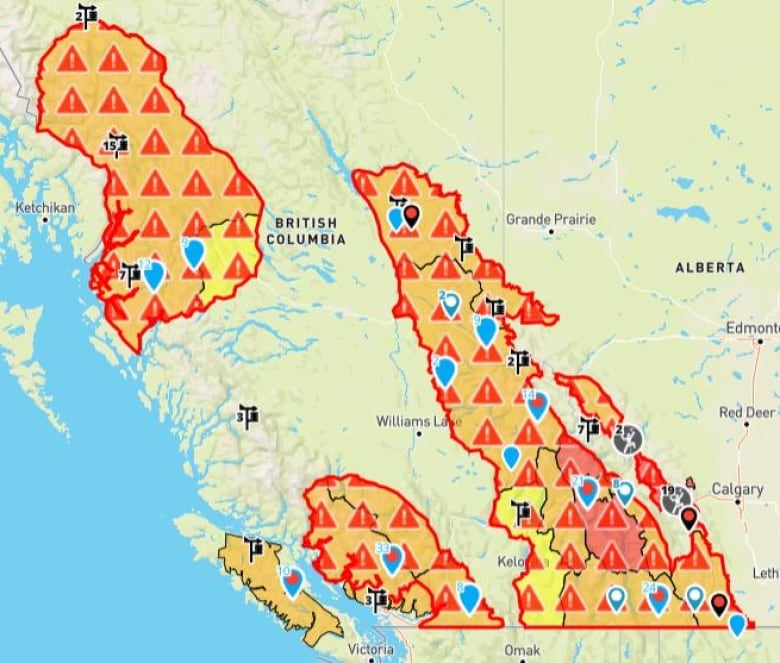A special avalanche warning for British Columbia issued last week is being extended until Thursday as hazardous conditions persist in the backcountry — conditions that claimed the life of a man in the Revelstoke area on Sunday.
The warning by Avalanche Canada, which remains in effect until the end of Thursday, applies to mountainous regions of Vancouver Island, southwestern and northwestern B.C., as well as a swath of southeastern B.C. including the Rockies and parts of Alberta.
The organization said in a statement that numerous natural, accidental and remote-triggered avalanches have been reported, and one death had been reported as a result of an avalanche.
Revelstoke RCMP confirmed that a 58-year-old Alberta man who had been snow-biking with a group had been trapped by an avalanche in the Sale Mountain area on Sunday afternoon.
The man was found and taken to a Revelstoke hospital, but later died.
In its statement, Avalanche Canada says recent storms have deposited a large amount of snow on “weak layers” established early this month that are prone to human-triggered avalanches.
“It’s essential to maintain conservative terrain choices until conditions improve,” Avalanche Canada said in its updated warning.
On Sunday night, nine people were rescued by search teams on B.C.’s South Coast after getting stuck in challenging terrain while exploring the backcountry.

Troy Fogarty of Comox Valley Search and Rescue said Monday his teams were preparing for potential rescues, checking equipment and doing beacon work on Mount Washington.
“Typically when it’s considerable conditions and it’s a nice sunny day, more likely, those are the times when people might need help,” he said.
He reminds adventurers that search and rescue is available if people need help.
“Search and rescue in B.C. is always free of charge, so don’t be afraid to call and call early to increase your chance of rescue.”



